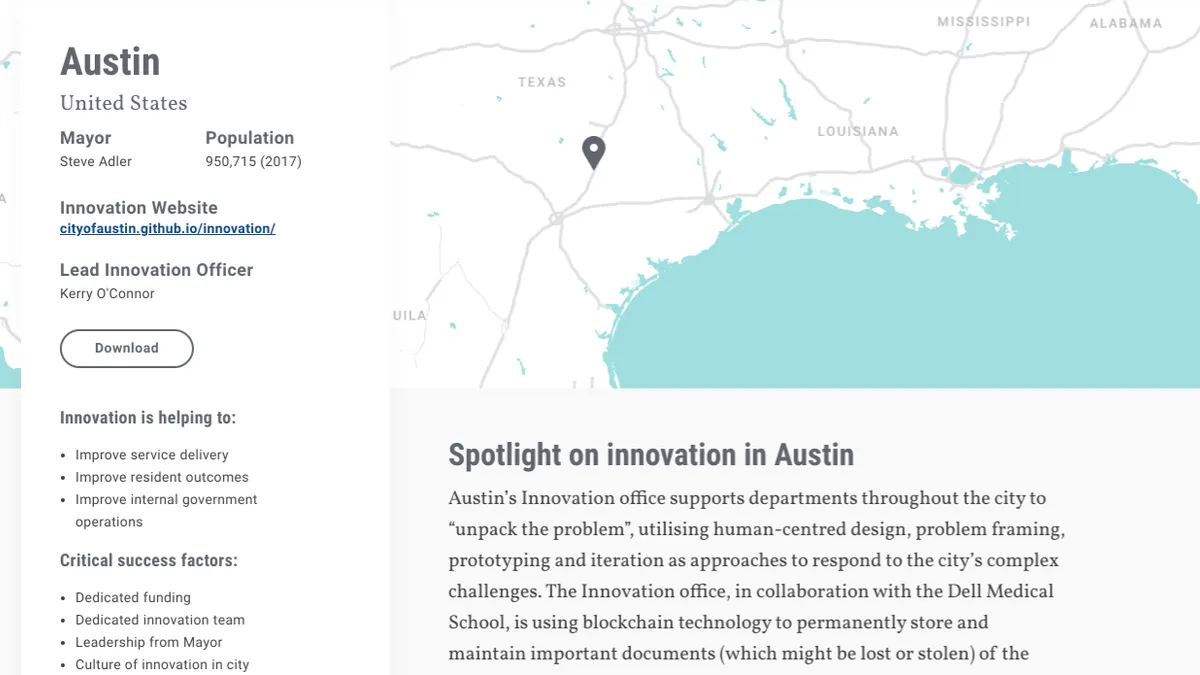Dive Brief:
- Bloomberg Philanthropies and the Organization for Economic Cooperation and Development (OECD) released a report and interactive map to demonstrate cities' commitments to innovation and how they affect citizens' lives.
- Nearly 90 global cities were surveyed for the report, which lists key findings and recommendations in five areas of innovation capacity: strategies and approaches; staffing and structure; data; resources and funding; and evaluation and results. More than half of responding cities (55%) have formal innovation goals and 49% have a formal innovation strategy. Data plays a significant or somewhat significant role in innovation decision making and policy for 85% of the surveyed cities.
- The report notes that innovation provides cities with ways to face growing budgetary pressures and new societal demands. Most responding cities (80%) have specific funding to support innovation capacity but few (16%) conduct a comprehensive and systemic evaluation of the outcomes and impacts of their innovation strategy.
Dive Insight:
"Innovation" is a broad term that carries different definitions for people in different cities. In this context, the report considers innovation to be a new product or process that significantly differs from what previously existed and was available to potential users.
For the public sector, that means developing products and processes that achieve new results as well as putting into practice new ways to achieve better public results. The report notes that 40% of cities reported improved efficiency in service delivery and 37% reported improved internal operations.
Despite cities moving toward greater innovation and dedicating resources to improve innovation capacity, few cities reported adequate self-evaluations and follow-up. This reflects the need for cities to determine from the outset the purpose and potential outcomes of innovation. Increasingly, cities are adopting comprehensive plans for their smart city journeys and not adding piecemeal innovations. The report findings also reinforce the growing sentiment among city leaders that they should not innovate for innovation's sake, but rather to deliver tangible results that improve residents' lives.
Coinciding with the report and map release, Bloomberg Philanthropies announced a nine-month intensive program to help cities learn how to adopt innovation techniques that can have a lasting impact. Any city with a Chief Innovation Officer on staff is able to apply.












